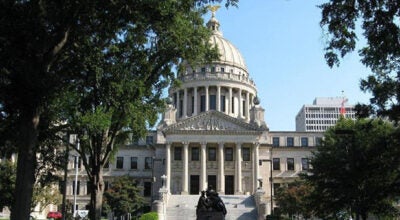Mississippi county responds to open meetings complaint
Published 4:21 am Thursday, February 24, 2022
An east-central Mississippi county said it did not violate the state’s Open Meetings Act when it held multiple nonquorum meetings with engineers earlier this month to discuss potential improvements to the Oktibbeha County Lake Dam.
The Commercial Dispatch newspaper filed an open meetings complaint against Oktibbeha County after supervisors met with representatives of the Mississippi Engineering Group on Feb. 3 in separate nonquorum discussions that were held without notice and were not open to public attendance.
Supervisors Orlando Trainer and Joe Williams attended one session; board President Bricklee Miller and Supervisor Marvell Howard, the other. Supervisor John Montgomery was out of town and attended neither meeting.
A reporter from The Dispatch sat in the session with Miller and Howard. However, because the meetings weren’t open to the public, the newspaper alleges they constituted “rolling quorums,” which the Ethics Commission has previously deemed a violation of the Open Meetings Act, the newspaper reported.
In the county’s response to the complaint, Board of Supervisors attorney Rob Roberson wrote that the meetings were informal “educational meetings” meant to answer questions for supervisors about a complicated topic. The response said supervisors did not discuss policy, funding or any type of action but met simply to better prepare to discuss the dam report in a March public session.
Roberson also denied the meetings were rolling quorums because they weren’t prearranged meetings where the “deliberative stages of the decision-making process that lead to the formation and determination of public policy” took place.
The Ethics Commission ruled in 2014 that the city of Columbus was in violation of the Open Meetings Act after the newspaper filed a similar complaint alleging the City Council met in a similar fashion. That decision was upheld by the state Supreme Court.
Roberson, however, said the current case is different because decisions weren’t made and the media was welcome to attend.
The newspaper contends that the meetings should have been open to the public.
“While we don’t believe these meetings were intended to be secretive in any way, we stand by our position that the information presented was intended to help lawmakers make an informed decision. Such meetings — regardless of the complexity of the subject matter – should be open to the public,” Dispatch publisher Peter Imes said.
More News





